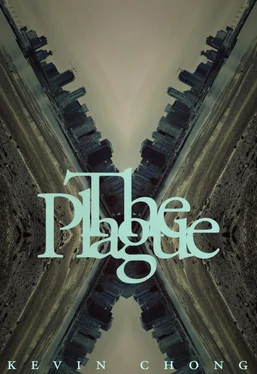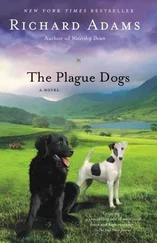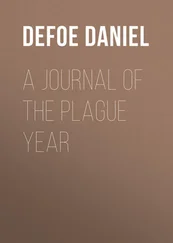In Vancouver, there was no reason to hurry. Vancouverites sought survival—in body, in mind, and this forced them to slow down. They didn’t want to die. They also sought purpose. Some stepped inside a church for the first time, even though their blood boiled as they were offered communion wafers by coughing priests. Others found themselves untangling themselves from long-held beliefs for the first time.
Tso kept notes. She took photos. This was the first extended holiday she had taken since she finished college. Even then she knew she had an internship lined up for September, followed by the rush of grad-school applications. This stay in Vancouver was indefinite.
That week, Tso quit social media because her electronic interactions with the outside world made her dizzy; it spun on a faster axis than the city did. A friend working at a publication that she once dreamed of writing for asked for an essay on life within a quarantine zone; the friend wrote back two hours later to say that the story idea now felt “dated.” But there was interest elsewhere. Her niche expertise overlapped a cataclysmic event—and she was on the ground. “This will make your career for the next five years,” she was told. “If you don’t die.”
She dropped Yuko’s bag at the consulate and returned home to rest. To her surprise, her hotel had grown to full occupancy since the quarantine. The new residents did not look like tourists. Most of them were solitary men. They stepped out of the elevator with stale eyes, and pinched their noses through their face masks as if trying to avoid an offensive smell. Afterward, they shuffled in their sink-washed shirts to fill the restaurant bar, drinking down draught beers until there were only lips of foam at the bottom of their glasses. Tso sat alone at the bar, cradling a notebook and a Cape Cod. She knew she was a target for these men, but she didn’t receive a single unwanted remark or proposal.
Most of the men only wanted to talk. They offered theories on the infection: A few suggested that the disease had been introduced by angry Communist Party officials in China in an attempt to temporarily depress the price of real-estate held by Chinese tax evaders. Given her heritage, she tried to work through her mixed feelings about being Westernized enough to be included in such dubious conversations.
One hotel resident, a criminal court judge named Jeffrey Oishi, told her that the disease had prompted his wife to kick him out of their home. “The missus prefers dying alone than waiting on me at my deathbed or being waited on by me,” he said right after he introduced himself. “How could I question her resolve?” He drank apple juice through a straw, a habit that contributed to his aura of listlessness. He had taken time off from work to find a new home, but admitted that he hadn’t looked around—a hotel room was better for him now in his uncertain state.
The camaraderie inspired by the hotel lounge allowed them to confess to one another their fear of dying alone. The judge had elderly parents in assisted living and younger siblings preoccupied with their own families. “I was raised to be the responsible, self-sufficient one,” the judge told Tso. “If I die, I don’t want it to interrupt anyone’s life. Not even my daughter’s.” He was a compact man in his fifties with a round bald head. He had married later in life, and his daughter was still a child. His manner, lacking the usual membrane between thought and speech, made him seem youthful. His demeanour as a judge must have been the complete opposite, Tso surmised.
“Let’s make a pact,” Tso said. “If we don’t see one another for twenty-four hours, we will call the front desk.”
“Okay, but let’s call the police in case there’s a false alarm,” the judge said as they shook hands. “I would rather piss off the 9-1-1 operator than the hotel staff.”
_________
Only two weeks earlier, Megan Tso had felt desperate not to be found. She had changed her numbers and blocked her ex from everything, fearing that he would chase her down. The day before she left Los Angeles, she found an unopened bottle of his antipsychotic meds—the ones she’d begged him to take—in a shopping bag hanging from the front door of the AirBnb cottage that she’d been renting under a friend’s name. Now, to want to be traced created a cognitive whiplash.
As Megan crossed Denman Street on a pedestrian light, a car veered into the intersection and stopped just short of hitting her. The driver threw his hands up in the air as though she had gotten in the way. She spit on his car. He blasted the horn at her. His tires squealed onto Denman. She hurried back to the hotel. I don’t need a biblical disease to die, or a chemically unbalanced ex, just an idiot behind the wheel.
It was in this hotel that Tso also became a friend of Raymond Siddhu. They met in a way that is typical of Vancouver acquaintanceships. They saw each other and each felt a vague recognition. Siddhu’s image and byline filled the city newspaper, the one she used to track local reactions to a story being reported globally. In his columns, the new mayor’s efforts to curtail a pandemic were being compared with his predecessor’s handling of a garbage strike and the bulldozing over of an opioid-ravaged neighbourhood. For his part, Siddhu recognized her from a photo and write-up that appeared in the free weekly before her event. They Googled biographical data on each other after they shared an elevator to their rooms on opposite ends of the fourth floor. But they refused to acknowledge one another for several days.
On the day Tso was to meet her mysterious consulting client, she found Siddhu in the restaurant for breakfast. The eating area had become fuller, homier, more like a rooming-house kitchen. The waitresses brought everyone their drink of choice without being asked. Judge Oishi was lingering at a table with the reporter. “Hey, everyone’s here!” he declared. This time he drank milk through a straw. He told her to pull over a chair. Mint tea was brought to her.
She often saw Siddhu early in the day speed-shuffling from the far end of the fourth-floor hallway, slinging one arm into a tweed blazer as he panted toward the elevator. He reminded her of the scene in Disney’s Fantasia when the hippos mince around in tutus. He appeared effeminate in his gestures and mortified at his bulk. He swirled the stir stick in his black coffee like the wing of a hummingbird, seeming to take pleasure in the motion. A gold wedding band stood out on his dark, hairy hand. Siddhu had the same frayed appearance as the other men in the hotel, the same melancholy, but he projected the purposeful desperation of a man worried about missing his last chance.
“You’re up late,” Siddhu said to Tso as she sipped her tea.
For any true Vancouverite, Tso learned later, proximity precluded introductions and served as the larval stage of acquaintanceship.
“I’ve been getting ready to meet a client,” she told him. “Shouldn’t you be at the newspaper?”
“I’m starting a new job today,” he said, lips curling into a smile as she acknowledged him. “Their workplace culture involves oversleeping. I’m surprised you haven’t gone for your run today. What kind of client does a woman who writes about death meet with?”
Now that’s a big small-town introduction, Tso thought to herself. “It’s a secret,” she told him. “He’s press shy.”
“My daughter is visiting me tonight,” the judge interjected. “If you two get in early enough, please join us for dinner.”
Tso agreed. A black SUV picked her up outside the hotel, as had been confirmed. The driver, dark-haired, vaguely Slavic-looking, wouldn’t respond to her questions. This better be good. They crossed a bridge to the other side of the city. The driver took an off-ramp that led them to a busy street, then turned onto a road that ran alongside the water. The houses facing the water were built on the cliff side below. She could only see hedges and gates. Then they reached the longest hedge of them all and then the biggest gate. The car approached a roundabout driveway that encircled a marble fountain. A man was waiting at the door.
Читать дальше












